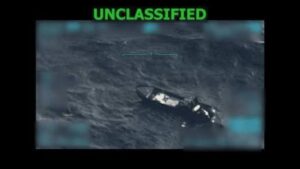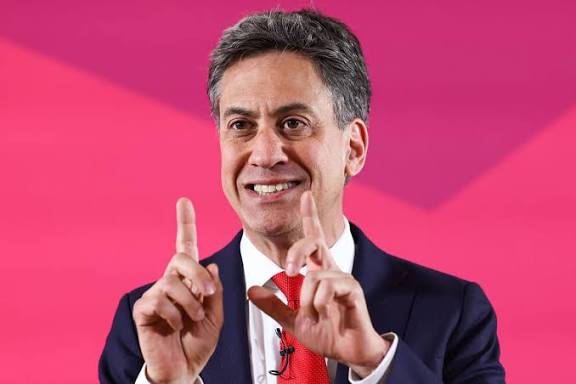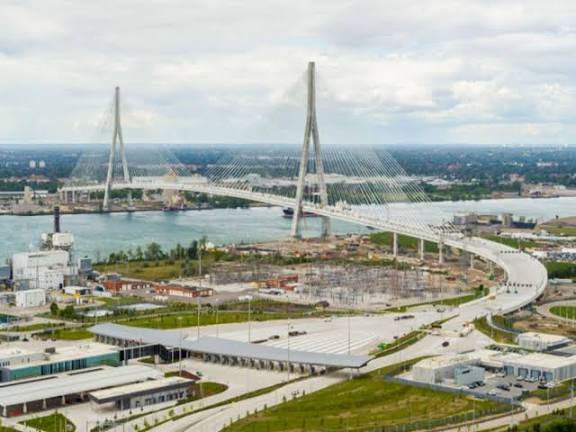Trump Orders 2nd Strike on Drug Boat: What REALLY Happened Off Venezuela

The attack is another by the US on an alleged Venezuela drug boat. The first happened on September. Today we will discuss about Trump Orders 2nd Strike on Drug Boat: What REALLY Happened Off Venezuela
Trump Orders 2nd Strike on Drug Boat: What REALLY Happened Off Venezuela
On September 15, 2025, U.S. President Donald Trump announced that the U.S. military had carried out a second kinetic strike on a vessel allegedly connected to drug trafficking from Venezuela.
He stated the vessel was transporting illicit narcotics in international waters, and the operation was ordered by him. The target was described as “extraordinarily violent drug trafficking cartels and narcoterrorists.”
Casualties and details claime

The strike reportedly killed three individuals on board.
No U.S. personnel were harmed.
Trump posted a video (on his platform Truth Social) showing a vessel exploding and catching fire, saying narcotics, including cocaine and fentanyl, were involved.
The latest strike is said to have occurred in the area of responsibility of U.S. Southern Command (SOUTHCOM), which covers the Caribbean seas, Latin America, etc.
Preceding strike (the first one)
Earlier, on September 2, U.S. forces struck another boat off Venezuela allegedly carrying drugs. That strike reportedly killed 11 people.
The first vessel was alleged to be connected to Tren de Aragua (a Venezuelan gang), designated by the U.S. as a foreign terrorist organization.
Claims, counterclaims, and what is still unclear
While the U.S. presents its narrative strongly, several important questions and disputes remain. These are critical to understanding the full picture.
Evidence for the U.S. claims
The U.S. claims the boats were positively identified as belonging to drug traffickers, specifically linking the first to Tren de Aragua.
For the second strike, Trump said there was proof: cargo “spattered all over the ocean — big bags of cocaine and fentanyl all over the place.”
A video was released showing the explosion of a boat.
Challenges and denials
From Venezuela: Venezuelan officials, including government ministers, have denied that those killed in the first strike were members of Tren de Aragua or that they were drug traffickers.
Regarding proof: Critics and several media reports note that the U.S. has not publicly released independent evidence confirming the presence of drugs aboard the boats in either strike (especially the second). The claims rely largely on U.S. government statements.
Legal and ethical issues
Legality under international law: Strikes in international waters are not automatically illegal, but when lethal force is used in non‑armed conflict settings (i.e. outside declared war zones), there are questions about due process, definition of “narcoterrorists,” and whether the targets posed an imminent threat.
Designation of criminal groups as “terrorist organizations”: The U.S. has designated groups like Tren de Aragua as foreign terrorist organizations, which gives legal basis from Washington’s perspective for harsher action. Sullivan of the U.S. government argues that the “terrorist” label justifies more aggressive military measures.
Precedents, warnings and messages: Trump, Rubio, and other U.S. officials have emphasized that these strikes are meant as deterrents, to send a warning to drug traffickers. This strategy introduces risk of escalation or misinterpretation.
Geopolitical implications and international response
Tensions with Venezuela: These actions have been condemned by President Nicolás Maduro’s government, which claims they are acts of aggression and violations of sovereignty.
U.S. regional posture: The U.S. has increased military presence in the Caribbean (warships, aircraft) and is preparing measures to target drug trafficking not just by sea but by land.
Domestic legal scrutiny: In Congress and among legal experts, there are concerns about whether these strikes overstep constitutional or international legal boundaries, especially without clear transparency.
What is not yet known (key gaps)
The exact location of the second strike: beyond being in international waters, more detail (coordinates, distance from Venezuelan shores or U.S. territory) is not publicly confirmed.
The identities of those killed in either strike (beyond U.S. claims).
Independent verification of the narcotics claimed (type, quantity, chain of custody).
Whether warning was given, how proportional the response was, what forces/weapons were used.
Whether there was any diplomatic channel pursued before authorizing the strike.
Why this matters: stakes, risks, and implications
This event isn’t just another strike. It has broad implications.
Shifting U.S. policy toward more militarized drug interdiction
Traditionally, U.S. anti‑drug policy relies more on law enforcement, interdiction, intelligence cooperation, seizures, etc. These strikes mark a more overtly military approach—expanding from targeting traffickers in their home countries or in transit, toward using lethal force in international waters. This could set new precedents globally.Legal precedent & human rights
The criteria used to define a group as “narcoterrorists,” the standards for evidence, and the transparency of military orders will be under scrutiny. There is risk of abuses, mistaken identity, collateral damage, or targeting non‑combatants.Sovereignty and international diplomacy
Venezuela sees these as violations of sovereignty and international law. If other nations witness the U.S. striking vessels connected to their nationals or in their regions, diplomatic fallout or even retaliation could follow.Deterrence vs escalation
The U.S. is clearly signaling that drug trafficking is a national security issue and that maritime routes are not safe. But these kinds of actions might provoke countermeasures, push traffickers to change tactics (more covert, more risky routes), or escalate tensions with countries accused of complicity (directly or indirectly).Domestic impact
In the U.S., the administration claims this is part of protecting Americans from “drugs that can kill,” especially fentanyl. Public opinion, legal challenges, and congressional oversight will be important in determining how far this kind of policy can go.
Assessing credibility: weighing the claims
Here’s how the competing narratives stack up as of now:
| Claim | Strengths / Supporting Evidence | Weaknesses / Unverified Elements |
|---|---|---|
| U.S. killed 3 in second strike, targeting Venezuelan narcoterrorists transporting drugs. | Official statements by President Trump, video evidence of explosion + fire, consistency with prior claims, alignment with U.S. deployed assets. | No independent confirmation of the cargo, identities, or affiliation. Venezuela denies claims. Some ambiguity about how “positively identified” was done. Lack of full operational transparency. |
| First strike killed 11 and was against members of Tren de Aragua transporting narcotics. | U.S. government has made the designation, released video, administration officials have defended the strike publicly. | Disputes from Venezuela, questions from experts/legal analysts about legal justification, immediate threat, or whether non‑military/adversarial conditions. Gaps in public verification. |
Legal grounds & international law
Use of force in international waters: Under customary international law, using lethal force in international waters is possible—but only under certain conditions: state must have jurisdiction (e.g., pursuing universal crimes, authorized by treaty or resolution, self‑defense, etc.), or accepted norms. Whether drug trafficking qualifies as an “armed conflict” or “imminent threat” is legally contested.
Designation of criminal organizations as terrorist organizations: This gives the U.S. additional legal flexibility. However, critics argue that “terrorism” is being stretched to cover drug trafficking, which traditionally is a criminal matter. This raises concerns about human rights protections, due process, possible misapplication.
U.S. domestic law: The executive has broad powers for national defense and foreign affairs, but there are limits. Congress has oversight. There are also laws governing antagonism toward foreign entities and rules about wartime vs non‑wartime use of force.
Risk of precedent and abuse: Once a state starts doing strikes in international waters to combat non‑state actors involved in non‑violent (but illicit) actions, others may follow similar logics—some warranted, others more questionable.
What to watch going forward
Release of further evidence
Will the U.S. provide satellite, drone, or on‑scene seizure evidence to corroborate the drug claims, identities, etc.? Independent verification from third parties will be crucial.International and diplomatic reactions
How will Venezuela respond formally (e.g. through the United Nations, International Court of Justice)? Will regional blocs or other countries in Latin America protest or respond?Congress and U.S. legal challenges
Given concerns about authority, due process, and oversight, Congress may hold hearings. Legal suits (domestic or international) may arise.Further action & escalation
Trump’s statements suggest more strikes could happen, possibly on land routes, etc. This could lead to escalation in force but also higher risk of civilian harm or international conflict.Traffickers’ behavior changes
The cartels/tren de aragua or other smuggling networks may change their routes or methods. Under pressure, they may adopt more covert or riskier approaches.
My assessment & what seems likely
Based on current public reports:
The U.S. almost certainly conducted both strikes; there is video evidence (at least from the U.S.) and consistency in messaging.
The strikes represent a real shift toward using military force more aggressively in counter‑narcotics, not just interdiction or partnerships.
However, it seems likely that some of the claims are being asserted more strongly than what is fully documented publicly (e.g. amount/species of narcotics, affiliation of persons killed).
Legal and moral concerns are significant and will not go away: these operations will face challenges both from Venezuela and from international human rights / law of war / domestic U.S. law perspectives.
How useful was this post?
Click on a star to rate it!
Average rating 0 / 5. Vote count: 0
No votes so far! Be the first to rate this post.
About the Author
usa5911.com
Administrator
Hi, I’m Gurdeep Singh, a professional content writer from India with over 3 years of experience in the field. I specialize in covering U.S. politics, delivering timely and engaging content tailored specifically for an American audience. Along with my dedicated team, we track and report on all the latest political trends, news, and in-depth analysis shaping the United States today. Our goal is to provide clear, factual, and compelling content that keeps readers informed and engaged with the ever-changing political landscape.




